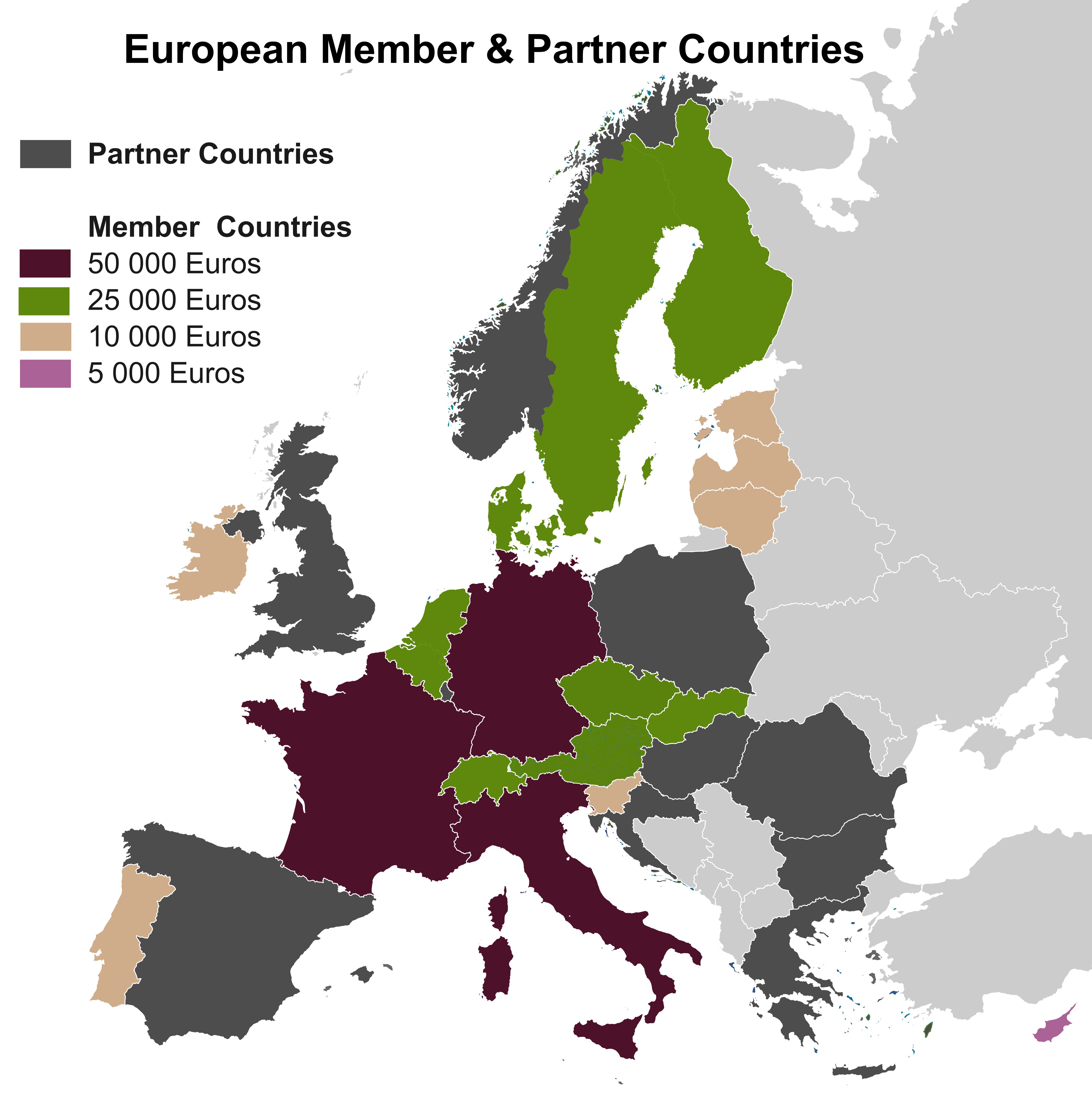Funding, Expenditure and Ensuring Sustainable Support
The MUCF plays a vital role in facilitating cooperation and information exchange between different European stakeholders to support closing crop protection gaps in minor uses. The objective is to enable farmers to produce high-quality speciality crops and thereby to contribute to continuous sustainable European agriculture. However, to continue this important work, we rely on voluntary funding contributions from European Countries. Without steady funding, the continuity of the MUCF could be jeopardized.
How we are funded:
The MUCF is funded through voluntary contributions by its Member Countries. These contributions are based on a tiered system that reflects the size of each country's economy and their capacity to support our mission. This ensures that all countries, regardless of size, can participate in making a meaningful difference.
Contribution levels:
-
Group 1:
- - - - - Countries with large economies (over 20 million people) contribute 50 000 EUR annually. -
Group 2:
- - - - - - - - - - - - - Countries with mid-sized economies (5.35–20 million people) contribute 25 000 EUR annually. -
Group 3:
- - - - - - - - Countries with smaller economies (under 5.35 million people) contribute 10 000 EUR annually.
In addition to these core contributions, European countries can also make voluntary additional donations to fund specific initiatives, such as MUCF projects, capacity-building efforts, or special ideas aimed at addressing urgent minor uses challenges.
How the Budget is Managed
The MUCF budget and its work programme are determined on a yearly basis by Member Countries at the annual general meeting (AGM). The Facilities’ planning, budgeting and management are all organised on a results-based system.
The Facility is hosted by the European and Mediterranean Plant Protection Organization (EPPO). EPPO’s financial auditor (independent external auditing) audits the MUCF’s financial account, and the financial management is performed by EPPO.
Member Countries Budget Contributions in Past Years and MUCF expenses
The MUCF was funded jointly by the European Commission and the governments of France, Germany, and the Netherlands from April 2015 to April 2018. Since April 2018, the Facility has relied fully on voluntary contributions from European countries (EU Member States, Norway, the United Kingdom and Switzerland.
Below is an overview given in 1000 Euros of contributions received from 2015 to 2024 and the respective expenses and balance:
Voluntary Basis
The MUCF is funded on a voluntary basis by MUCF Member Countries.
Government Funding
Governments are the primary source of funding for the MUCF since 2018.
European Involvement
Over the past years, the funding of the MUCF has depended on average by 17-19 out of European countries.
* The expense and balance for 2024 is a forecast.
You can download individual PDF here:
Why the contribution of European Countries Matters
The MUCF is at the heart of European efforts to support solving minor uses issues, as acknowledged by EU Agricultural Ministers during a Council discussion 2019.
Our work relies on the collective action of our Member Countries, and the financial support is crucial to ensure we can continue our efforts.
Here’s why the financial contribution of European Countries is vital:
- Continuity of MUCF Work Programme: Without consistent funding, the MUCF work programme could be interrupted, impacting the progress made in addressing and solving minor uses issues.
- Inclusive Participation: Contributions allow all European countries minor uses experts to engage in MUCF meetings, shaping solutions, ensuring that all countries voices are heard.
The Need for Sustainable Funding
In recent years, the MUCF has been relying on voluntary contributions, and while many countries have stepped up, the funding situation remains uncertain. For example, 17-19 European countries have contributed consistently over the past few years, but many others have not yet committed.
The MUCF advocates that every European country contributes to the budget in order to maintain the Facility. If all countries participate, we can ensure the continuity of the MUCFs work and make a lasting impact on minor uses issues.
The Role of the European Countries in Securing the MUCF Future
The support of the European countries is critical. Here is how the European countries can help.
- Commit to Annual or Multi-year Contributions: Join our funding framework to support the secretariat’s ongoing work.
- Make Voluntary Donations: Enhance our impact by funding specific or initiatives that align with your country’s priorities.
- Engage in Collaborative Efforts: Beyond funding, offer expertise, share knowledge and national information, and participate in key initiatives that advance the MUCF mission.
How to Contribute
To make a contribution (financial or in-kind) or learn more about how your country can get involved, please contact us.
